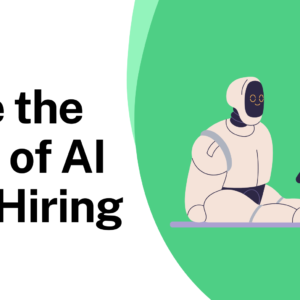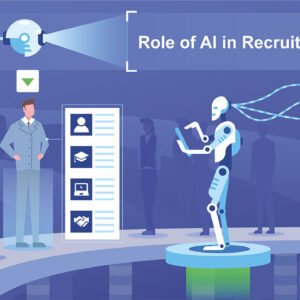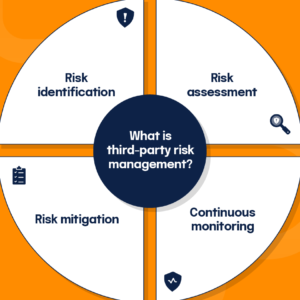As we move forward in 2025, AI Regulations 2025 are becoming a crucial aspect of the tech industry. The rapid development of artificial intelligence has led governments to establish regulations to ensure the ethical use of AI and protect consumer data. Understanding artificial intelligence regulations is vital for businesses to comply and thrive in the AI-driven market. The future AI laws that are expected to shape the industry will have a significant impact on how businesses operate and innovate.
With the increasing use of artificial intelligence in various sectors, it is essential to stay informed about the latest developments in AI Regulations 2025. This will enable businesses to prepare for the changes and opportunities that these regulations will bring. The main focus will be on AI Regulations 2025, artificial intelligence regulations, and future AI laws that are expected to shape the industry. By staying ahead of the curve, businesses can ensure they are compliant and positioned for success in the rapidly evolving tech landscape.
Introduction to AI Regulations
AI regulations are designed to promote transparency, accountability, and fairness in the development and deployment of artificial intelligence. As the use of AI continues to grow, it is likely that we will see more stringent regulations in the future. Businesses must be prepared to adapt to these changes and ensure they are meeting the requirements of AI Regulations 2025. By doing so, they can minimize risks and maximize opportunities in the AI-driven market.
Key Takeaways
- AI Regulations 2025 will have a significant impact on businesses and tech companies
- Understanding artificial intelligence regulations is crucial for compliance and success
- Future AI laws will shape the industry and require businesses to adapt
- Staying informed about AI Regulations 2025 is essential for preparation and opportunity
- AI regulations promote transparency, accountability, and fairness in AI development and deployment
- Businesses must be prepared to adapt to changing AI regulations to minimize risks and maximize opportunities
Understanding AI Regulations 2025
As businesses and tech companies navigate the complex world of artificial intelligence, understanding the regulatory framework for AI is crucial. The regulatory framework for AI and AI compliance standards are designed to ensure that AI systems are developed and deployed in a way that is transparent, accountable, and fair. Emerging technology regulations play a significant role in shaping the future of AI, and companies must stay up-to-date on the latest developments to remain compliant.
The importance of AI regulations cannot be overstated. Regulatory frameworks provide a foundation for trust and accountability in AI systems, which is essential for their widespread adoption. By establishing clear guidelines and standards, regulatory frameworks help to mitigate the risks associated with AI and ensure that its benefits are realized. Some key aspects of AI regulations include:
- Ensuring transparency and explainability in AI decision-making processes
- Protecting consumer data and privacy
- Preventing bias and discrimination in AI systems
As the use of AI continues to grow and evolve, it is essential that companies prioritize AI compliance standards and stay informed about emerging technology regulations. By doing so, they can ensure that their AI systems are developed and deployed in a way that is compliant with regulatory requirements and aligned with the values of transparency, accountability, and fairness.
Current Landscape of AI Regulations
The world of artificial intelligence is rapidly evolving, and with it, the need for comprehensive regulations. Governments worldwide are implementing government AI policies to ensure the safe and responsible development of AI technologies. The current landscape of AI regulations is complex, with various countries and organizations establishing their own set of rules and guidelines.
Major regulatory bodies, such as the European Union and the United States, are playing a significant role in shaping the global AI regulatory framework. The EU’s autonomous technology legislation and the US’s ethical AI guidelines are being closely watched by other countries, as they strive to create their own regulatory frameworks. The following are some key aspects of the current landscape:
- Establishment of regulatory bodies to oversee AI development and deployment
- Development of ethical AI guidelines to ensure transparency and accountability
- Implementation of autonomous technology legislation to regulate the use of autonomous systems
- International cooperation to establish global standards for AI regulations
As the AI regulatory landscape continues to evolve, it is essential for businesses and organizations to stay informed about the latest developments and updates. By understanding the current landscape of AI regulations, companies can ensure compliance and stay ahead of the competition.
| Country | Regulatory Framework |
|---|---|
| United States | Established regulatory bodies, such as the Federal Trade Commission (FTC) |
| European Union | Implemented the General Data Protection Regulation (GDPR) and established the European Commission’s High-Level Expert Group on Artificial Intelligence |
| China | Developed the New Generation Artificial Intelligence Development Plan, which outlines the country’s AI strategy and regulatory framework |
Implications for Tech Companies
As AI Regulations 2025 come into effect, tech companies must navigate the complexities of compliance. Understanding artificial intelligence regulations is crucial for startups, as non-compliance can result in significant fines. Established firms also face cost implications, including investments in compliance and potential penalties.
The future AI laws will require tech companies to adapt and innovate. Compliance is key, and companies that prioritize it will thrive. New opportunities emerge for tech companies that can balance innovation with regulatory requirements. For instance, companies can develop AI-powered tools to enhance compliance and reduce costs.
Some key considerations for tech companies include:
- Developing AI systems that meet regulatory standards
- Implementing robust data protection measures
- Ensuring transparency and accountability in AI decision-making
By understanding AI Regulations 2025 and artificial intelligence regulations, tech companies can turn compliance into a competitive advantage. As the regulatory landscape evolves, companies that prioritize compliance and innovation will be well-positioned for success. The future of AI is shaped by these regulations, and tech companies must be prepared to adapt and thrive.
| Company Type | Compliance Requirements | Cost Implications |
|---|---|---|
| Startups | Develop AI systems that meet regulatory standards | Significant investments in compliance |
| Established Firms | Implement robust data protection measures | Potential fines for non-compliance |
Effect on Innovation and Development
The regulatory framework for AI plays a crucial role in shaping the future of innovation and development in the tech industry. As AI compliance standards continue to evolve, companies must navigate the delicate balance between regulation and innovation. Emerging technology regulations can either hinder or facilitate innovation, depending on their design and implementation.
For instance, flexible regulatory frameworks can encourage experimentation and creativity, while overly restrictive regulations can stifle innovation. To strike a balance, regulatory bodies must consider the needs of both consumers and businesses. The following are some key considerations for balancing regulation and innovation:
- Encouraging transparency and accountability in AI development
- Providing clear guidelines for AI compliance standards
- Fostering collaboration between regulatory bodies, businesses, and consumers
Case studies of AI innovation have shown that companies that prioritize compliance and transparency are better equipped to navigate the complex regulatory landscape. As the future of AI project funding continues to take shape, it is essential to consider the impact of regulatory frameworks on innovation and development. By striking a balance between regulation and innovation, we can unlock the full potential of AI and drive growth in the tech industry.
| Regulatory Framework | Innovation Impact |
|---|---|
| Flexible | Encourages experimentation and creativity |
| Restrictive | Stifles innovation and growth |
Consumer Protection and Privacy
As AI technology continues to advance, concerns about consumer protection and privacy have become increasingly important. Governments around the world are implementing government AI policies to safeguard consumer data and ensure that companies are transparent about their use of autonomous technology. The introduction of autonomous technology legislation has been a significant step forward in protecting consumer rights, and ethical AI guidelines are being developed to promote responsible AI development and deployment.
The impact of these regulations on consumer trust cannot be overstated. When consumers feel that their data is being protected, they are more likely to trust companies and feel confident in their interactions with them. This, in turn, can lead to increased loyalty and retention. To achieve this, companies must prioritize transparency and accountability, clearly communicating how they collect, use, and protect consumer data.
- Implementing robust data protection measures
- Providing clear and concise information about data collection and use
- Ensuring that consumers have control over their data and can opt-out of certain uses
By following these guidelines and adhering to government AI policies, autonomous technology legislation, and ethical AI guidelines, companies can demonstrate their commitment to consumer protection and privacy, ultimately building trust and loyalty with their customers.
Role of AI in Business Strategy
As businesses continue to navigate the complex landscape of AI regulations, they must also consider the role of AI in their overall business strategy. Integrating AI regulations into business plans is crucial for companies to stay ahead of the curve and maintain a competitive edge. By understanding future AI laws and the regulatory framework for AI, businesses can make informed decisions about how to leverage AI in a way that is both innovative and compliant.
One key aspect of this is AI compliance standards, which provide a framework for businesses to ensure they are meeting the necessary regulatory requirements. By prioritizing compliance, companies can avoid costly fines and reputational damage, while also building trust with their customers and stakeholders. Some strategic adjustments that tech companies can make to comply with regulations include:
- Conducting regular audits to ensure AI systems are transparent and fair
- Implementing robust data protection measures to safeguard sensitive information
- Establishing clear guidelines for AI development and deployment
By taking a proactive approach to AI compliance, businesses can turn regulatory requirements into a competitive advantage. This not only helps to mitigate risk but also drives innovation and growth, as companies are able to harness the full potential of AI in a responsible and sustainable way. As the regulatory landscape continues to evolve, companies that prioritize compliance and integrate AI regulations into their business strategy will be well-positioned for success in the years to come.
Sector-Specific Impacts of AI Regulations
The impact of AI regulations varies significantly across different sectors, with each presenting unique challenges and opportunities. As emerging technology regulations continue to evolve, it’s essential to examine how these changes affect various industries. The healthcare sector, for instance, must prioritize safeguarding sensitive data, while finance focuses on reinforcing security measures. Meanwhile, the transportation sector is grappling with autonomous technology legislation and its implications for autonomous vehicles.
In the healthcare sector, government AI policies play a crucial role in ensuring the secure handling of patient data. This includes implementing robust data protection measures and adhering to strict guidelines for AI-driven medical research. In contrast, the finance sector must navigate the complexities of emerging technology regulations to prevent cyber threats and maintain the integrity of financial transactions. The transportation sector, on the other hand, is working to establish clear autonomous technology legislation that balances innovation with public safety.
- Healthcare: Implementing robust data protection measures to safeguard sensitive patient information
- Finance: Reinforcing security measures to prevent cyber threats and maintain transaction integrity
- Transportation: Establishing clear autonomous vehicle regulations to ensure public safety and promote innovation
As these sectors continue to evolve, it’s essential to stay informed about the latest developments in government AI policies and emerging technology regulations. By doing so, businesses and organizations can navigate the complex landscape of AI regulations and capitalize on the opportunities presented by these advancements.
Preparing for Regulatory Changes
As businesses navigate the evolving landscape of AI regulations, proactive preparation is key to ensuring compliance and avoiding potential pitfalls. By understanding and adhering to AI compliance standards, companies can significantly reduce the risk of non-compliance and reputational damage. The regulatory framework for AI is continually evolving, and staying ahead of the curve is crucial for success.
Embracing ethical AI guidelines is an essential step in preparing for regulatory changes. This involves not only understanding the current regulations but also anticipating future developments and adjusting business strategies accordingly. Companies can take several steps to prepare, including:
- Conducting thorough risk assessments to identify potential vulnerabilities
- Developing and implementing comprehensive compliance programs
- Providing ongoing training and development for employees to ensure they are equipped to handle the complexities of AI regulations
Engaging with regulatory authorities is also vital in preparing for regulatory changes. By building relationships with these authorities and staying informed about the latest developments, businesses can ensure they are well-positioned to adapt to the evolving regulatory landscape. By taking a proactive and positive approach to preparing for regulatory changes, companies can turn compliance into a competitive advantage and thrive in the era of AI.
The Future of AI Regulations Beyond 2025
As we look to the future, it’s clear that the landscape of AI regulations will continue to evolve. Experts anticipate changes in the regulatory framework that will address emerging technologies and shifting societal concerns. Businesses must stay nimble and proactive to navigate this dynamic environment.
The long-term implications of AI regulations for companies will be significant. Compliance will remain a top priority, but forward-thinking organizations will also leverage regulations as a springboard for innovation. By aligning their AI strategies with the regulatory landscape, businesses can gain a competitive edge and position themselves as leaders in the AI-driven market.
To thrive in the future, companies should adopt a proactive approach. This includes engaging with regulatory authorities, staying informed on emerging regulations, and incorporating compliance into their business plans. Additionally, investing in employee training and development for AI-related regulations will be crucial to maintaining a future-ready workforce.














